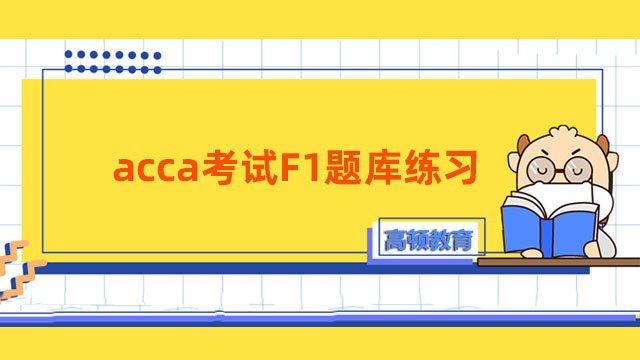2011年ACCA考试P1模拟试题(8)
1 Global-bank is a prominent European bank with branches throughout Europe and investment arms in many locations throughout the world. It is regarded as one of the world’s major international banks. Through its network of investment offices throughout the world,fund managers trade in local investment markets and equities. Futures and derivative traders also operate. Its primary listing is in London although it is also listed in most of the other global stock markets including New York,Hong Kong,Frankfurt and Singapore. As with similar banks in its position, Global-bank’s structure is complicated and the complexity of its operations makes the strategic management of the company a demanding and highly technical process. Up until the autumn of 2008,investors had a high degree of confidence in the Global-bank board as it had delivered healthy profits for many years.
In the autumn of 2008,it came to light that Jack Mineta,a Global-bank derivatives trader in the large city office in Philos,had made a very large loss dealing in derivatives over a three-month period. It emerged that the losses arose from Mr Mineta’s practice of ignoring the company trading rules which placed limits on,and also restricted, the type of financial instruments and derivatives that could be traded.
The loss,estimated to be approximately US$7 billion,was described by one analyst as ‘a huge amount of money and enough to threaten the survival of the whole company’. As soon as the loss was uncovered,Mr Mineta was suspended from his job and the police were called in to check for evidence of fraud. The newspapers quickly reported the story,referring to Mr Mineta as a ‘rogue trader’ and asking how so much money could be lost without the bank’s senior management being aware of it. It turned out that Mr Mineta’s line manager at the Philos office had ignored the trading rules in the past in pursuit of higher profits through more risky transactions. Mr Mineta had considerably exceeded his trading limit and this had resulted in the huge loss. It later emerged that Mr Mineta had been dealing in unauthorised products which were one of the riskiest forms of derivatives.
At a press conference after Mr Mineta’s arrest, Global-bank’s chief executive, Mrs Barbara Keefer,said that her first priority would be to ask the Philos office why the normal internal controls had not been effective in monitoring Mr Mineta’s activities. It emerged that Mr Mineta had in the past been one of Global-bank’s most profitable derivatives traders. Some journalists suggested to Mrs Keefer that the company was happy to ignore normal trading rules when Mr Mineta was making profits because it suited them to do so.
Another derivatives trader in the Philos office,Emma Hubu,spoke to the media informally. She said that Mr Mineta was brilliant and highly motivated but that he often said that he didn’t care about the trading rules. Miss Hubu explained that Mr Mineta didn’t believe in right and wrong and once told her that “I’m in this job for what I can get for myself – big risks bring big returns and big bonuses for me.” She also explained that the culture of the Philos office was driven by Mr Mineta’s line manager,Juan Evora. She said that Mr Evora knew that Mr Mineta was breaking trading rules but was also very profits driven and kept compliance information from head office so that the nature of Mr Mineta’s trading was not uncovered. The compliance information was required by head office but several failures to return the information had not been acted upon by head office. Mr Evora’s bonus was directly linked to the size of the Philos office’s profits and all of the derivatives traders,including Mr Mineta,were regularly reminded about the importance of taking risks to make big returns. Miss Hubu said that trading rules were not enforced and that head office never got involved in what went on in Philos as long as the annual profits from the Philos derivative traders were at or above expectations.
【整理版】ACCA各科目历年真题
真题高频考点,刷题全靠这份资料
acca全科学习思维导图
梳理核心考点,一图看懂全部章节
2023年acca考纲解析
覆盖科目重难点,备考按照计划走
- acca考试怎么搭配科目?
-
建议优先选择相关联的科目进行搭配报考,这样可以提高备考效率,减轻备考压力,1、F1-F4:为随时机考科目,难度较低,这里可以自行随意选择考试顺序。2、F5-F9:如果你的工作的和财务会计或者审计有关、或者你比较擅长财务和审计的话,推荐先考F7和F8。你可以选择一起考ACCA考试科目F7和F8或者先考F7(8)再考F8(7),这就要取决你一次想考几门。3、P阶段:选修科目中,建议企业首选AFM!第二部分科目进行选择,如果AA和SBR掌握学生更好,可以通过选择AAA,如果SBL掌握的好,可以自己选择APM。
- acca一共几门几年考完?
-
acca一共有15门考试科目,其中有必修科目和选修科目,考生需要考完13门科目才能拿下证书。
- acca一年考几次?
-
acca一年有4次考试,分别是3月、6月、9月和12月,分季机考科目是采取的这类四个考季的模式,而随时机考则是没有这方面的时间规定限制,可以随报随考。
- acca的含金量如何?
-
ACCA证书的含金量是比较高的,从就业、能力提升、全球认可等角度来说,都是比较有优势的证书,其含金量主要表现在以下几个方面:1、国际化,认可度高;2、岗位多,就业前景好;3、缺口大,人才激励。
-
acca考试F1题库练习,考生必备! 2023-03-20
-
acca2022真题下载流程介绍,必做考前模考题! 2023-02-24
-
ACCA试卷出题形式?ACCA考试最快多久能通过? 2021-07-24
-
ACCA官方样题 F4(ENG) F8 2021-01-07
-
ACCA考试P1-P3模拟题及解析9 2021-01-07
-
四大会计事务所2017年终精华会评(中) 2018-02-01
-
2016年ACCA F1模拟练习题及答案 2016-02-29
-
2016年ACCA F8每日一练:Professional ethics 2016-01-26
-
2016ACCA考试F8自测题:Corporate governance 2016-01-26
-
关于ACCA考试P7中的专业和道德问题 2015-11-24
-
ACCA P5精选模拟题之战略性绩效考核 2015-10-10
-
ACCA F9模拟测试题之投资评估 2015-10-10
-
ACCA P3精选练习题之战略管理和组织变革 2015-10-10
-
2014年ACCA《公司法与商法》真题及答案七 2015-07-20
-
2014年ACCA《公司法与商法》真题及答案七 2015-07-20
-
2014年ACCA《公司法与商法》真题及答案六 2015-07-20
-
2014年ACCA《公司法与商法》真题及答案五 2015-07-20
-
2014年ACCA《公司法与商法》真题及答案四 2015-07-20
-
2014年ACCA《公司法与商法》真题及答案三 2015-07-20
-
2014年ACCA《公司法与商法》真题及答案二 2015-07-20
-
2014年ACCA《公司法与商法》真题及答案一 2015-07-20
-
2014年ACCA《公司法与商法》真题及答案八 2015-07-20
-
2015年ACCA考试模拟题 2015-06-26
-
2015年ACCA考试精选测试题汇总 2015-06-19
-
2015年ACCA考试《财务成本管理》模拟题汇总 2015-06-18
-
2015年ACCA考试F8模拟试题:Financial Management 2015-06-18
-
ACCA考试2015年《财务成本管理》模拟练习汇总 2015-04-27
-
ACCA考试2015年《财务成本管理》模拟练习5 2015-04-27
-
ACCA考试2015年《财务成本管理》模拟练习4 2015-04-27
 更多服务
更多服务

















